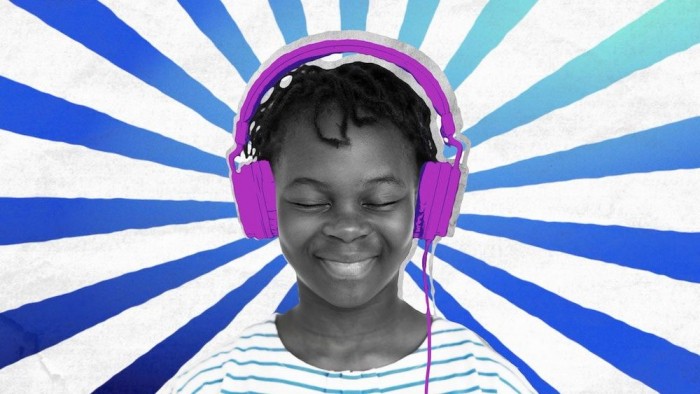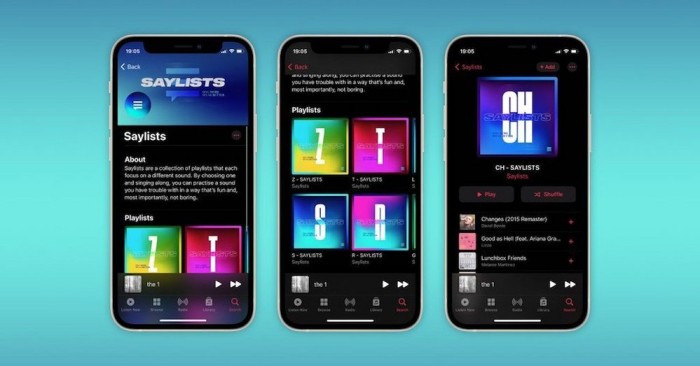Get analysis, insight & opinions from the world's top marketers.
Sign up to our newsletter.
Record label teams up with Apple Music to offer speech therapy for kids through its songs
This article was originally published in Contagious I/O on 3 June 2021
In March, Warner Music Group and Dublin creative agency Rothco released on Apple Music a collection of playlists that help children overcome speech sound disorder (SSD).
The campaign was based on the recognised therapeutic strategy of getting kids with speech impediments to repeat difficult syllables, words and phrases over and over again.

To make the task more engaging and entertaining, Rothco developed an algorithm that analysed over 70 million songs in Apple Music’s catalogue and identified tracks with lyrics that repeat the most common sounds used in speech therapy (‘CH’, ‘D’, ‘F’, ‘G’, ‘K, ‘L’, ‘R’, ‘S’, ‘Z’, ‘T’).
With the help of language therapist Anna Biavati-Smith, Warner Music selected 173 songs (by its artists) and divided them into 10 Saylists. Each collection of tracks tackled a specific sound that kids struggle with. For example, in the ‘D’ playlist, artist Dua Lipa’s song Don’t Start Now could be found. Meanwhile, Lizzo’s song Good As Hell was in the ‘G’ playlist.

The playlists are available to all Apple Music subscribers. Kids could select the playlist that had the most therapeutic value for them and then sing along to the music to help improve their speech impediment.
Listen in / It’s in Warner Music’s interests to encourage consumers to subscribe to a paid streaming service. According to the 2020 Global Music Report by the International Federation of the Phonographic Industry, in 2019 paid streaming accounting for 42% of all recorded music revenue. As such, it makes sense for the company to direct some of its marketing at streaming platforms.
A helping hand / Sometimes the best advertising isn’t advertising, it’s anthropology. This is what Contagious co-founder Paul Kemp-Robertson and lead strategist Chris Barth advocate in The Contagious Commandments: Ten Steps to Brand Bravery. In the book Kemp-Robertson and Barth write: ‘Any brand with a bank account can be generous…[but] Sometimes the best and most enduring solutions come from being supremely consumer-centric, by studying human society in order to solve pain points or to facilitate moments of joy in people’s lives.’
Warner Music is helping parents and children with speech impediments in a fun and engaging way while solving a pain point: the price of therapy. Despite some child-focused speech therapy services charging around £50 ($70) for a 30-minute session (after a $280 assessment), parents and kids can now access the necessary treatment for just $9.99 (the price of an Apple Music subscription). For brands, being generous towards society and helping alleviate problems is a tried and tested way to achieve consumer loyalty. Quite simply put, it’s good business.
Team effort / The Saylists campaign is an effective example of how brands can work together to increase the value of their offerings to consumers. This is often referred to as ‘1 + 1 = 3’, a business analogy made popular by former advertising creative David Trott in his book of the same name. Essentially, it describes how two brands can combine to create a consumer-friendly product or service that neither could easily build on their own as a smart way to accelerate innovation. In this case, Warner Music is able to reinforce the utility of music as more than just entertainment while driving revenue. Meanwhile, Apple Music is able to distinguish its service from the host of other streaming services (eg, Deezer, Spotify, etc) while increasing the likelihood of attracting additional subscribers.